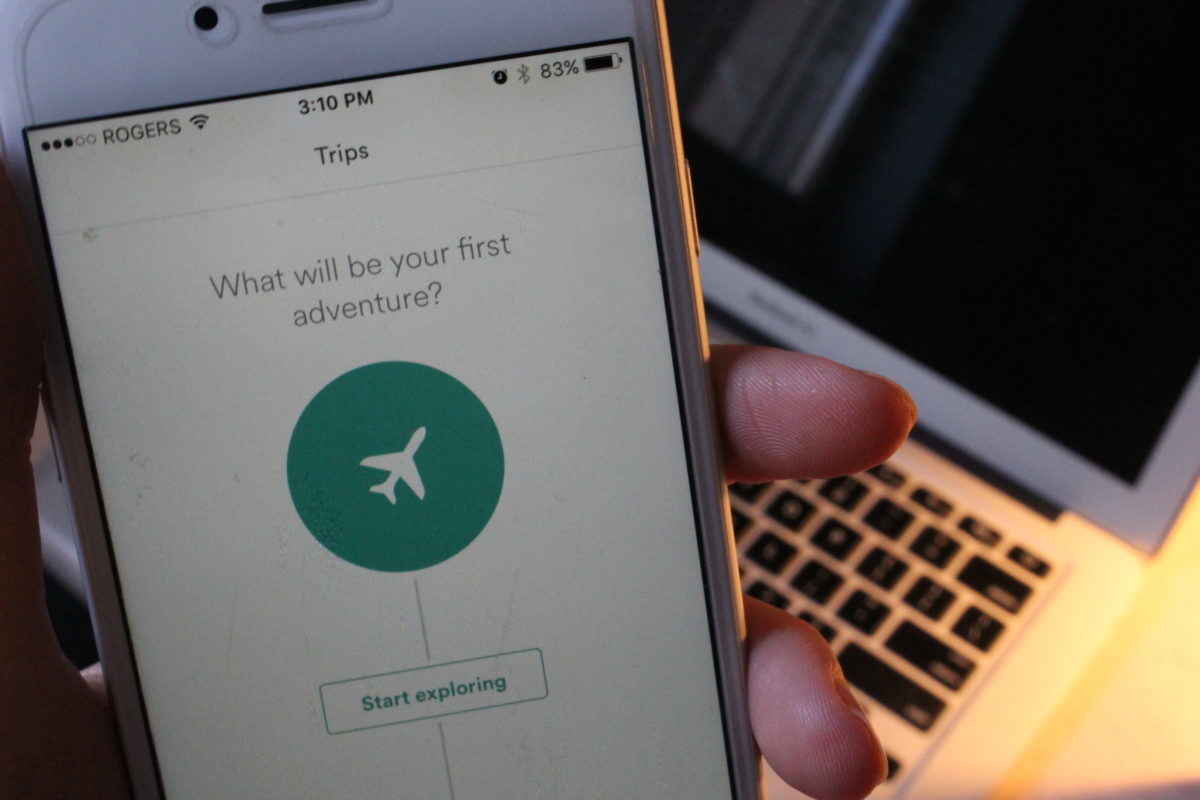When Stephanie Scott and three of her friends traveled to Montreal last March break, they didn’t expect to receive a noise complaint from the host of the AirBnB they stayed in.
Scott, who studies environmental and resource management at UNB, travels frequently and often uses AirBnB, an online network where hosts rent out their spaces to travellers. After a stay, guests rate hosts and hosts rate guests. The better a host’s overall rating and reputation, the more likely they are to get guests. The better a guest’s reputation, the more willing hosts are to allow them to rent their place.
In the past two years, Scott has travelled to Peru, Chile, Montreal, Quebec City and home to Guatemala City and chooses to use AirBnB since it’s cheaper than staying in a hotel. Before Montreal, she’d never had a bad experience.
“After that I was like oh God, I’m definitely going to pay more attention to what people say [in the reviews].”
Scott and her friends decided to play music from their phone (without connecting it to speakers) while staying in their Montreal AirBnB, but their host sent them a noise complaint. After that, according the Scott, he acted arrogant towards them and didn’t respond to an email Scott sent about a key she forgot to return following her stay there. He later gave her a poor rating on her AirBnB profile.
But his comments didn’t affect her overall rating too much, since other hosts had given her favourable ratings and comments.
Still, she sometimes feels self-conscious and worries about maintaining a good profile. She continues to use AirBnB for trips, but she now pays more attention to what people say about the hosts in the comments.
“One person isn’t going to change my view of the whole system,” she said.
The idea of renting your space out to a complete stranger or staying in a stranger’s house may seem like an uncomfortable situation and sometimes, like in Scott’s trip to Montreal, it is. But it’s becoming more common. Online marketplaces like AirBnB, Uber and the chore-helper app TaskRabbit are contributing to the “sharing economy” and helping structure our reputations in the modern world.
AirBnB is an online business that started in 2008. Travellers use AirBnB to rent other people’s space, whether it be a bedroom or house, while on vacation. In the Fredericton area, there are roughly 90 listings on AirBnB with an average price of about $75 per night. A typical hotel price in Fredericton is double that.
Noah Starr, 32, became an AirBnB host last year. After staying in his first AirBnB in Toronto, he decided to advertise his own house in Fredericton.
“As long as you’re doing things right and always trying to improve, there really is nothing bad about the rating system,” said Starr, who’s trying to bump his overall 4.5 rating up to five stars.
“It puts accountability onto the person who is booking and the host as well to provide a product that is accurate,” he said.
Uber, AirBnB and TaskRabbit allow people to rate others based on their performance. The reputation you leave on one platform can affect your reputation on another online platform; for example, your rating on eBay will improve the likelihood of getting guests on AirBnB.
They’re part of the sharing economy, also known as P2P or the Peer-to-Peer market. The sharing economy takes corporations out of the equation and replaces them with direct person-to-person transactions.
But these companies aren’t only reshaping the economy. They’re changing how we’re viewed by others in the modern world.
Dann Downes, an associate professor of information and communication studies at University of New Brunswick St. John, compared technology to the clothes we wear.
“Technologies are like the clothes that we wear. We do have some control over it,” he said, adding that we unconsciously adopt technology. “There are lots of forces—political and economical—that encourage us to use technology in particular ways and we go along with that, but we do have choices. We can choose not to answer our phones, we can choose not to binge watch Iron Fist in a weekend if we don’t want to,” Downes said.
Downes has published articles on the role of media in the construction of community and personal identity. He stated that research is indicating that, over time, people begin to behave the same offline as they did online.
“[Technologies] are tools for communication and tools for engaging critically…for the benefit of ourselves and to live better lives,” said Downes.
His conclusion was also reached by author and expert on digital collaboration and trust, Rachel Botsman. She gave a TED talk in June 2012 where she said that trust was the currency of the new economy.
“It’s all about empowering people to make meaningful; connections, connections that are enabling us to rediscover a humanness that we’ve lost somewhere along the way, by engaging in marketplaces like AirBnB, like KickStarter, like Etsy, that are built on personal relationships versus empty transactions,” said Botsman.
A book titled The Reputation Society: How Online Opinions are Shaping the Offline World confirms this theory too. It predicts that by the end of this decade, power and influence will shift from those with money to those with the best reputations, trust and networks.
Maintaining a good online reputation appears to be a new form of a credit.
“It’s not that our online presence has become more important,” said Downes. “I think what’s becoming more important is that our sense of who we are is determinate by the kinds of interactions and relationships we have. If our relationships are more online than in communities or in person, than that’s what’s becoming more important to us.

